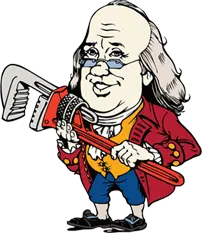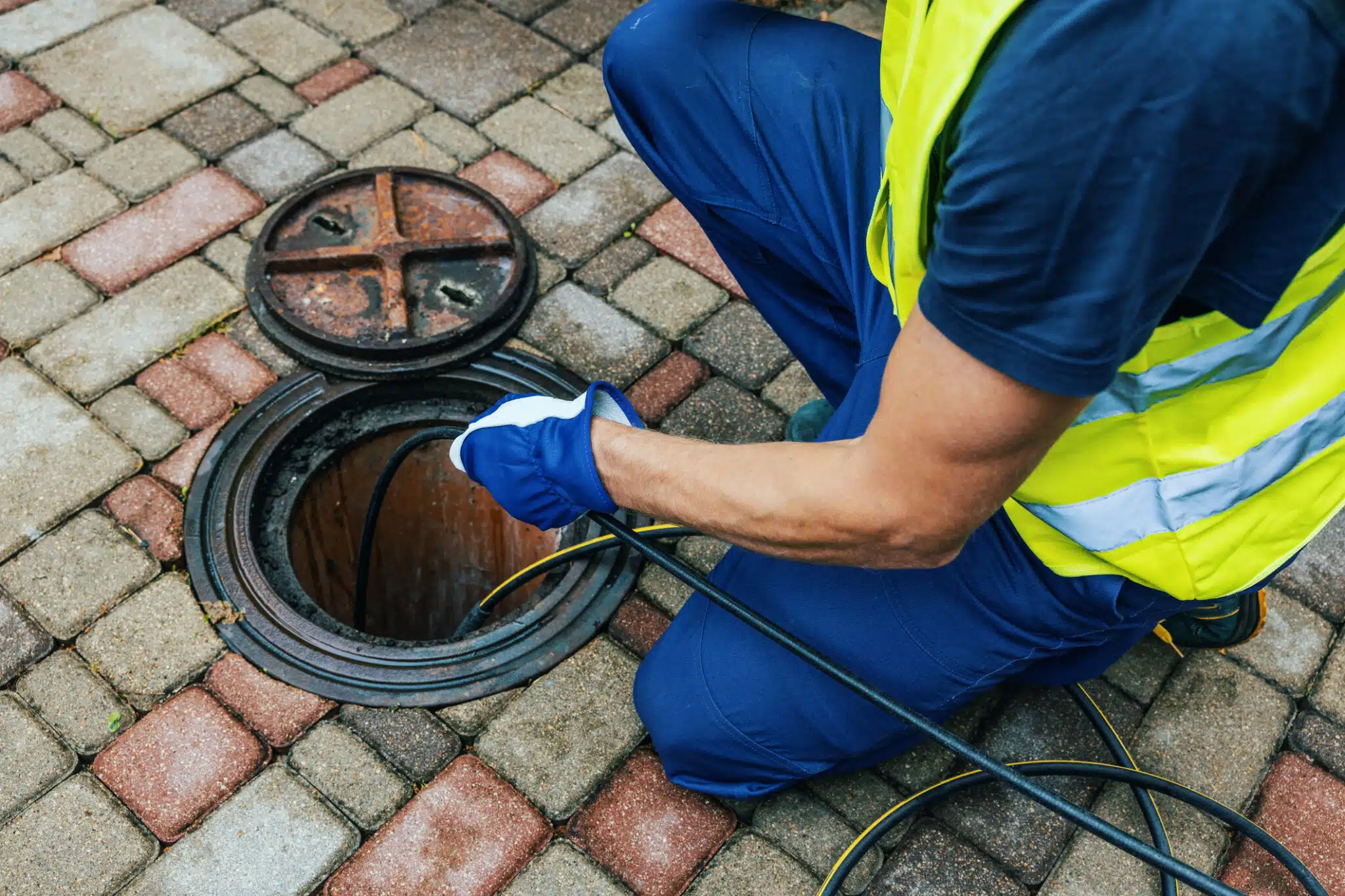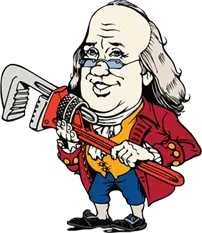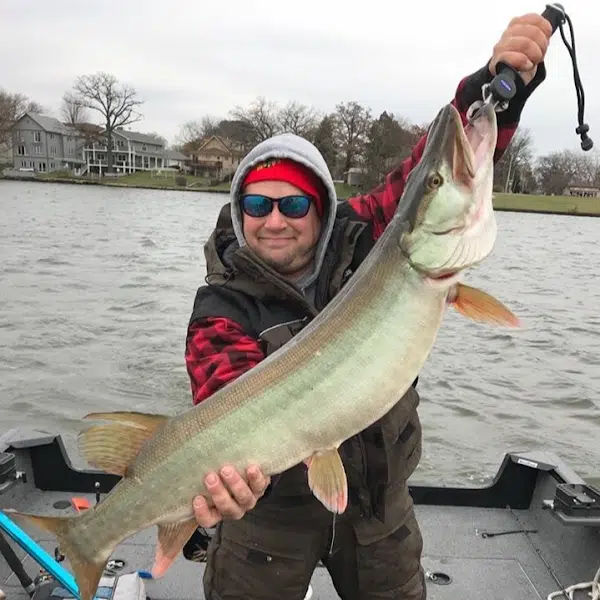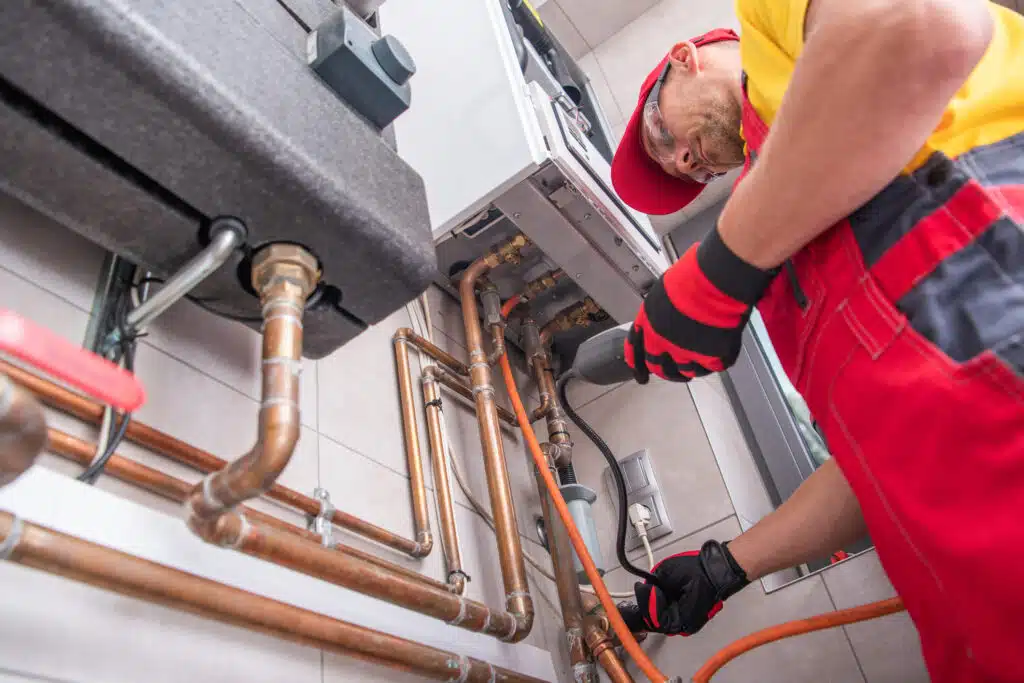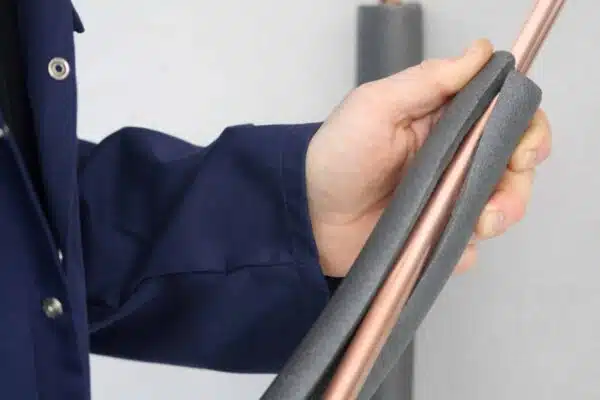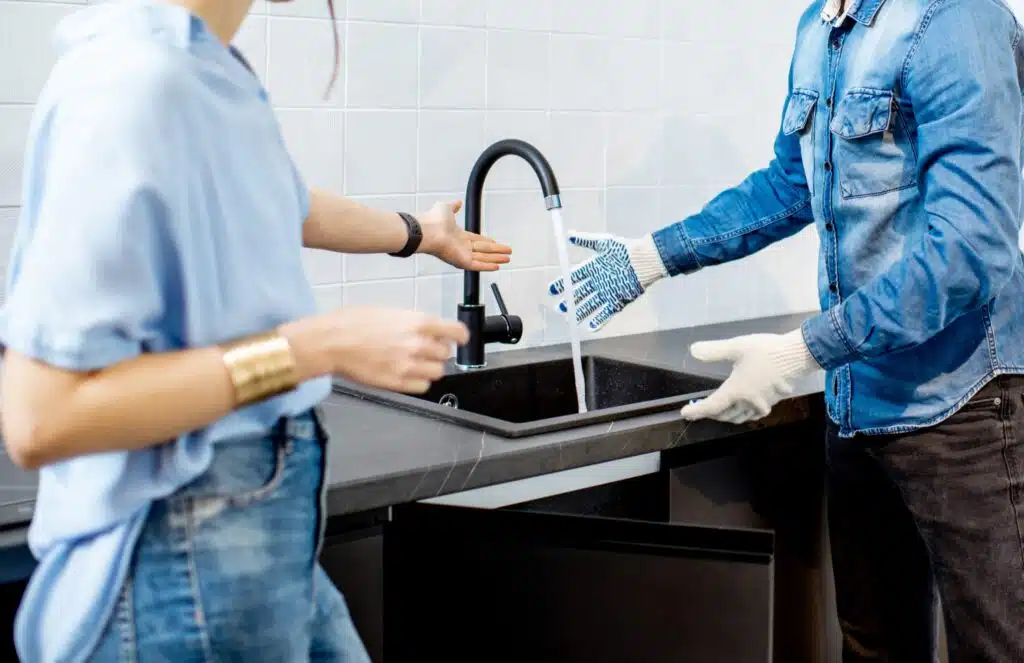When faced with emergency sewer blockages, homeowners often find themselves in a stressful situation. These unexpected issues can cause significant inconvenience and potential damage to your property if not addressed promptly. Fortunately, there are effective steps you can take to manage these emergencies quickly and safely. Understanding the right approach can minimize damage and help restore your sewer system’s functionality without delay.
In Lancaster, PA, and surrounding areas like Harrisburg, PA, the frequency of such incidents can vary. However, being prepared is key to tackling emergency sewer blockages effectively. Knowing who to call and what immediate actions to take can significantly reduce the stress and impact of these situations. It’s all about quick, informed decisions that prevent further damage to your property.
Emergency sewer blockages require a swift response to prevent overflow and potential health hazards. Identifying the signs early can be a game-changer in managing the situation effectively. Whether it’s a strange gurgling sound from your drains or an unpleasant odor, recognizing these early warnings can save you a lot of trouble. Acting fast can mean the difference between a minor inconvenience and a major ordeal.
Lastly, it’s essential to have a professional team ready to assist with emergency sewer blockages. Experts equipped with the right tools and knowledge can address the issue more efficiently, ensuring your home returns to normal as quickly as possible. In Lancaster, PA, and Harrisburg, PA, finding a reliable service provider is crucial. With the right help, managing emergency sewer blockages becomes a manageable task, rather than an overwhelming problem.
Identifying Emergency Sewer Blockages
Recognizing the early signs of emergency sewer blockages can significantly mitigate the impact on your home. In Lancaster, PA, residents may notice unusual noises from their plumbing, such as bubbling or gurgling sounds. These auditory cues often precede more severe symptoms, alerting homeowners to take immediate action. Acting upon these early warnings can prevent the situation from escalating.
Another clear indicator of a sewer blockage is the slow drainage of water in sinks, bathtubs, and showers. When water pools and drains more slowly than usual, it’s often a sign that a blockage is forming in your sewer system. This symptom, if noticed in multiple fixtures, suggests the issue is not localized but rather affects the main sewer line. Promptly addressing these signs can save you from more complicated and costly repairs down the line.
Foul odors emanating from drains or your yard are also telltale signs of emergency sewer blockages. These unpleasant smells arise from sewage backing up into your home or surfacing on your property. In Harrisburg, PA, homeowners experiencing these odors should not ignore them, as they indicate a significant issue with the sewer system. Quick action is necessary to protect your home and health from the consequences of sewage overflow.
Lastly, any occurrence of sewage backup in your home is a clear and urgent signal of a blockage. This distressing event usually happens in lower areas of your home, like basements, where drain lines are closest to the sewer level. It’s crucial to recognize this as a serious health hazard that requires immediate professional intervention. Contacting experts at the first sign of backup can dramatically reduce the damage and health risks associated with emergency sewer blockages.
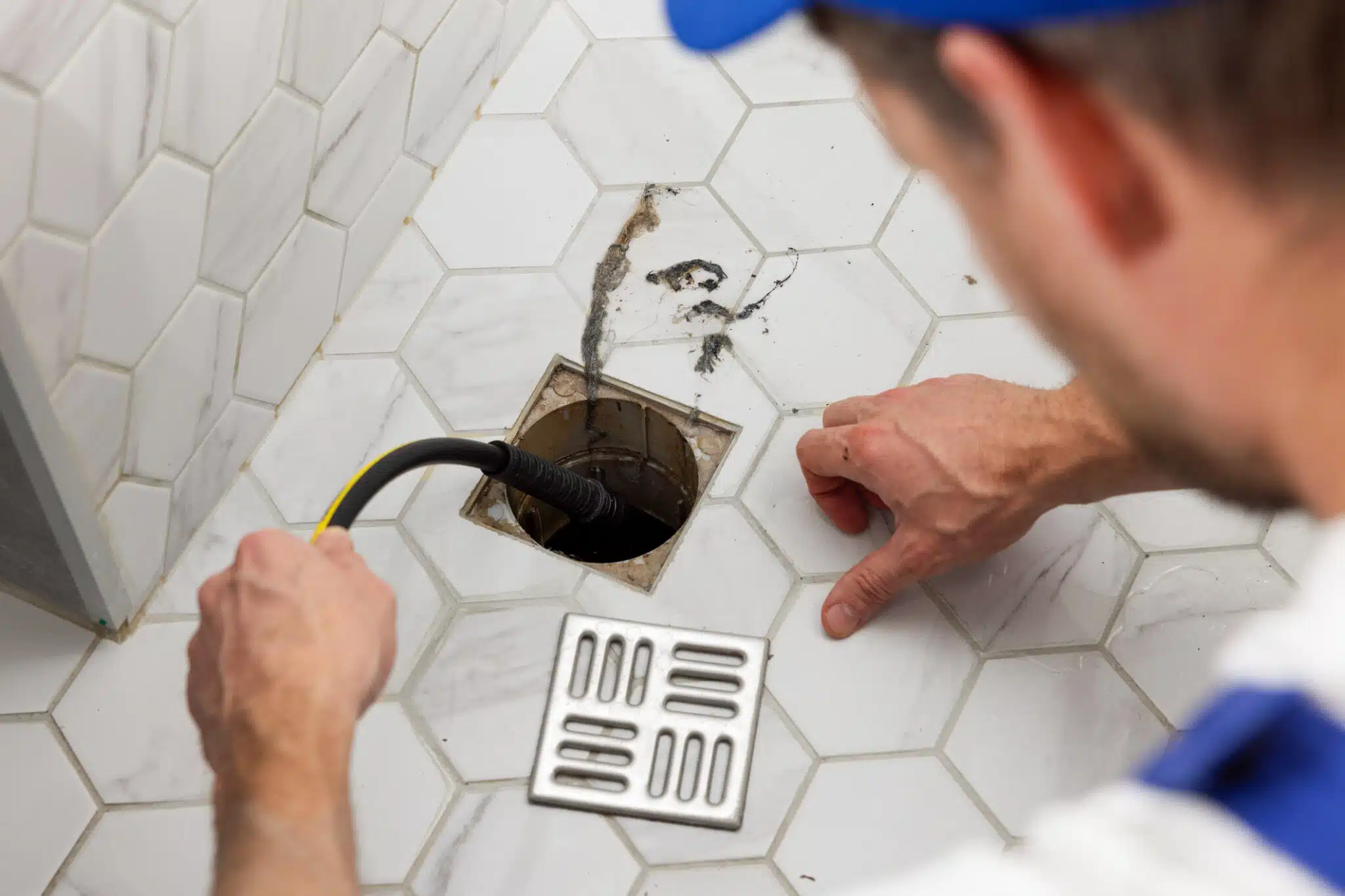
Immediate Actions to Take During a Blockage
When you notice the early signs of emergency sewer blockages, your immediate response can greatly influence the outcome. First, stop using all water in your home to prevent exacerbating the blockage. This means no showers, flushing toilets, or running faucets until the blockage is cleared. This step helps to minimize the risk of sewage backup and reduces the potential damage to your property.
Next, try to locate the main sewer cleanout line in your yard. This is a crucial step for homeowners in Lancaster, PA, as it can provide direct access to the blocked sewer line. Removing the cap allows some of the pressure to be released and might give you a clearer indication of the blockage’s severity. However, proceed with caution to avoid any direct contact with sewage.
In Harrisburg, PA, it’s wise to alert your neighbors if you suspect the blockage might affect the main sewer line. Since sewer systems are interconnected, a blockage in your line could potentially impact nearby homes as well. Communicating with your neighbors can help them prepare for any possible issues and may also help in identifying the blockage’s source if it’s a shared problem.
Finally, contacting a professional plumbing service should be your next step. Experts in emergency sewer blockages have the necessary equipment and expertise to diagnose and resolve the issue quickly and safely. They can also provide valuable advice on preventing future blockages and maintaining your sewer system. Trusting professionals ensures your sewer system is restored without risking your health or further damage to your property.
The Importance of Professional Help for Emergency Sewer Blockages
When facing emergency sewer blockages, the expertise of professionals cannot be overstated. They bring not only their knowledge but also specialized equipment to tackle the problem efficiently. This combination ensures that the blockage is addressed quickly, reducing the risk of sewage backup into your home. In Lancaster, PA, residents have access to skilled plumbers who can manage these emergencies with precision.
Professionals also provide invaluable advice on maintaining your sewer system to prevent future blockages. Their insights into the causes of blockages can help homeowners adopt better practices. For instance, they might suggest regular cleaning schedules or advise against flushing certain items. Such guidance is crucial for keeping the sewer lines clear in Harrisburg, PA, and beyond.
Moreover, hiring a professional service gives homeowners peace of mind. Knowing that an experienced team is handling the emergency allows you to focus on other aspects of your home’s safety. They work swiftly to mitigate damage, ensuring that your property and health are not at risk. This assurance is vital during the stressful times that emergency sewer blockages can bring.
Lastly, professional plumbers are adept at identifying and solving not just the immediate issue but potential future problems as well. Their thorough inspection of your sewer system can uncover underlying issues that might cause blockages down the line. By addressing these early, homeowners in Lancaster, PA, and Harrisburg, PA, can avoid the inconvenience and expense of repeated emergencies, keeping their homes safe and their sewer systems functioning optimally.
Preventative Measures to Avoid Future Sewer Blockages
Adopting preventative measures is crucial for avoiding emergency sewer blockages. Regular maintenance of your sewer system plays a vital role in identifying potential problems before they escalate. Homeowners in Lancaster, PA, can benefit from scheduling annual inspections with professionals. These inspections help to catch and remove minor blockages, reducing the risk of emergencies.
Another effective strategy is to be mindful of what goes down your drains. Avoid flushing items that do not disintegrate easily, such as wipes, feminine hygiene products, and cooking grease. Such materials can accumulate in your sewer lines, leading to blockages. Educating all household members on proper disposal practices can significantly decrease the likelihood of sewer issues.
Incorporating simple changes in daily habits can also protect your sewer system. For instance, installing drain strainers in sinks and showers captures hair and other debris, preventing them from entering the sewer line. Residents of Harrisburg, PA, have found this to be an easy yet effective method to keep their drains clear. Regularly cleaning these strainers ensures they continue to protect your plumbing effectively.
Lastly, considering the landscape around your property can prevent root intrusions, a common cause of sewer blockages. Trees and large plants should be planted away from sewer lines to avoid roots growing into and clogging the pipes. If you suspect root intrusion, professionals can assess and address the issue with minimal impact on your yard. Taking these steps can safeguard your home against the inconvenience and expense of emergency sewer blockages.
Understanding the Causes of Emergency Sewer Blockages
Understanding the root causes of emergency sewer blockages is crucial for effective prevention and management. In many cases, these blockages result from the accumulation of household waste, such as paper products, that don’t break down easily. Lancaster, PA residents can mitigate this risk by being more selective about what they flush down their toilets. Simple changes in household habits can significantly reduce the incidence of blockages, ensuring smoother operation of the sewer system.
Another common cause of emergency sewer blockages is the intrusion of tree roots into sewer lines. As trees search for moisture, their roots can penetrate tiny cracks in the pipes, eventually leading to significant blockages. In Harrisburg, PA, homeowners should consider the location of sewer lines when planting trees or large shrubs. This proactive approach can prevent root intrusion and save homeowners from the hassle and expense of dealing with blockages.
Grease and fat from kitchen waste also play a significant role in creating blockages. When poured down the drain, these substances solidify within the sewer lines, attracting other debris and forming a clog. To prevent this, homeowners should dispose of grease and fat in the trash rather than washing them down the sink. This simple practice can maintain the flow of wastewater and prevent emergency sewer blockages.
Lastly, severe weather conditions, such as heavy rain, can overwhelm sewer systems and lead to blockages. Excessive water can carry debris into the sewer lines, causing backups. By ensuring proper drainage around their property, residents can help mitigate the impact of heavy rainfall on the sewer system. This preventive measure, combined with the others mentioned, can significantly reduce the likelihood of experiencing emergency sewer blockages.
DIY Solutions for Minor Sewer Blockages
While encountering emergency sewer blockages can be daunting, there are effective DIY solutions for minor issues that homeowners can try before calling in professionals. For instance, using a plunger can often dislodge smaller blockages in your toilet or drain, restoring flow without the need for specialized tools. This simple method applies pressure to the blockage, encouraging it to move along the sewer line. It’s a first step that residents in Lancaster, PA, can take to address the problem quickly.
Another approach involves a mixture of baking soda and vinegar, a natural solution that can help clear minor blockages without resorting to harsh chemicals. Pouring this mixture down the affected drain creates a reaction that can break down the clog. After letting it sit for an hour, flushing with hot water might clear the blockage, offering a safe and environmentally friendly option. This method has proven effective for many in Harrisburg, PA, dealing with early signs of blockages.
For blockages that are a bit more stubborn, a manual drain snake can be a handy tool. This flexible auger allows you to reach deeper into the sewer line than a plunger, physically breaking apart the blockage or retrieving objects causing the clog. It’s a more direct approach that can save a call to the professionals if the blockage is within reach. Homeowners should handle the snake carefully to avoid damaging their pipes.
Lastly, maintaining a regular cleaning schedule for your drains can prevent the buildup that leads to emergency sewer blockages. Simple practices, such as flushing drains with hot water weekly or using enzyme-based cleaners, can keep your sewer system running smoothly. These preventive measures are especially beneficial in areas like Lancaster, PA, and Harrisburg, PA, where the risk of blockages can be higher due to various factors, including tree roots and seasonal changes.
When to Call a Professional for Sewer Blockages
Despite your best efforts with DIY solutions, there are times when calling a professional is the only viable option for dealing with emergency sewer blockages. If you’ve tried plunging, baking soda and vinegar mixes, or even a manual drain snake without success, it’s time to seek expert help. Professionals have the tools and expertise to tackle even the most stubborn blockages, ensuring your system is cleared safely and effectively. In Lancaster, PA, reaching out to a trusted plumbing service can provide the quick resolution you need.
Recognizing when a blockage is beyond your ability to fix is crucial for preventing further damage to your property. Signs that it’s time to call in the experts include water backing up into your home, persistent bad odors, or drains that consistently run slow despite your efforts. These symptoms suggest a more severe issue within your sewer system that requires professional intervention. Homeowners in Harrisburg, PA, should not delay in contacting a professional to avoid the situation worsening.
Professionals not only address the immediate problem but also assess your sewer system for any underlying issues that could lead to future blockages. Their comprehensive approach can save you time and money by preventing repeat incidents. With the right equipment, they can perform a detailed inspection of your pipes, identifying and rectifying potential problems before they escalate. This proactive measure is invaluable for maintaining a healthy sewer system.
Ultimately, while DIY methods can be effective for minor issues, understanding when to call a professional can save you from a potential disaster. Emergency sewer blockages require prompt and knowledgeable intervention to protect your home and health. By entrusting this task to the professionals, you ensure a swift return to normalcy with minimal disruption to your daily life. Whether you’re in Lancaster, PA, or Harrisburg, PA, expert help is just a call away, providing peace of mind during stressful situations.
The Process of Professional Sewer Blockage Removal
When professionals tackle emergency sewer blockages, they start with a thorough assessment to pinpoint the exact location and cause of the blockage. In Lancaster, PA, this often involves using advanced diagnostic tools like sewer cameras. These devices allow plumbers to inspect the sewer lines from within, ensuring they can accurately identify the problem without unnecessary digging or guesswork. This precision not only speeds up the repair process but also minimizes damage to your property.
After identifying the blockage, the next step involves choosing the most effective method to remove it. High-pressure water jetting is a common and efficient technique used by experts in Harrisburg, PA. This method blasts water through the sewer lines at high pressure, effectively breaking apart and flushing out the blockage. It’s a safe and environmentally friendly solution that avoids the use of harsh chemicals.
In some cases, more stubborn blockages may require mechanical removal. Professionals have access to specialized tools, such as motorized drain augers, that can cut through tree roots or other hard-to-remove obstructions. This approach ensures that even the toughest blockages are cleared, restoring your sewer system to optimal functionality. The expertise of professionals ensures that the right tools are used for each unique situation, preventing further damage to the pipes.
Finally, once the blockage is removed, professionals often perform a final inspection to ensure the sewer lines are clear and fully functional. This may include another camera inspection to verify that no debris remains and that the structural integrity of the pipes is intact. Homeowners in both Lancaster, PA, and Harrisburg, PA, can rest assured knowing that their sewer system has been thoroughly cleared and is less likely to face similar issues in the near future. This comprehensive approach helps prevent future emergency sewer blockages, offering long-term peace of mind.

Frequently Asked Questions
What causes Emergency Sewer Blockages?
Emergency sewer blockages often stem from various sources. Common culprits include the buildup of grease, hair, and foreign objects flushed down toilets. Tree roots invading sewer lines can also cause significant blockages. Regular maintenance and careful disposal of waste can help prevent these issues.
How can I prevent sewer blockages?
Preventing sewer blockages starts with mindful waste disposal. Avoid flushing anything besides human waste and toilet paper. Regularly clear drains of hair and grease. Schedule annual inspections to catch and address any issues early, reducing the risk of emergency sewer blockages.
What are the signs of a blocked sewer?
Recognizing the signs of a blocked sewer is crucial for quick action. If you notice water backing up in your sinks or toilets, it’s a clear indicator. Unusual noises coming from the drains can also signal a blockage. Bad smells emanating from your plumbing are another common warning sign, urging immediate attention to prevent further damage.
How to safely handle Emergency Sewer Blockages?
When dealing with emergency sewer blockages, safety comes first. Turn off the water supply to prevent further damage. Next, contact a professional plumber immediately to address the issue. Avoid trying to fix the problem yourself, as this can lead to more serious complications.
When should I call a professional for a blockage?
Contact a professional for a blockage as soon as you notice signs like water backup or bad smells. Delaying can lead to more severe emergency sewer blockages. Professionals have the right tools and expertise to quickly resolve the issue. This ensures your plumbing system is restored safely and efficiently.




